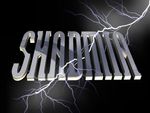Thursday
Mar222007
Bush Pushes Back
 Thursday, March 22, 2007 at 12:10AM
Thursday, March 22, 2007 at 12:10AM
President Bush, in response to congressional pressure to allow his top aides to testify in the investigation of the firing of eight federal prosecutors, made an offer. He vowed to oppose any subpoenas, in court if necessary, but he would allow his aides to testify before Congress in a closed private session, without taking any oaths and would not allow any transcripts of the session.
The House of Representatives Judiciary subcommittee promptly rejected the President's offer and authorised Democratic Representative John Conyers of Michigan, the chairman of the full Judiciary Committee, to issue subpoenas for the following:
Karl Rove, Former White House counsel Harriet Miers, Deputy White House counsel William Kelley, Rove aide Scott Jennings and Kyle Sampson, Gonzales' former chief of staff. The President can claim executive privilege to try to prevent his aides from testifying to Congress. But it can be challenged in court. The Senate Judiciary Committee was expected to authorise subpoenas of its own as part of the widening investigation of the firings.
"We have worked toward voluntary cooperation on this investigation, but we must prepare for the possibility that the Justice Department and White House will continue to hide the truth," said the panel's chairwoman, Democratic representative Linda Sanchez of California.
This could get difficult for the President, who can always claim executive privilege, and have it turned over to the courts, but it begs the question: What does Bush have to hide and why not just let his aides testify?
Keith Olbermann examines the presidential motives behind what looks like the beginnings of a battle between the White House and the Congress:
[youtube=http://youtube.com/watch?v=haVAZYXSMBM]
[youtube=http://youtube.com/watch?v=cO3KdYZs40I&mode=related&search=]
The House of Representatives Judiciary subcommittee promptly rejected the President's offer and authorised Democratic Representative John Conyers of Michigan, the chairman of the full Judiciary Committee, to issue subpoenas for the following:
Karl Rove, Former White House counsel Harriet Miers, Deputy White House counsel William Kelley, Rove aide Scott Jennings and Kyle Sampson, Gonzales' former chief of staff. The President can claim executive privilege to try to prevent his aides from testifying to Congress. But it can be challenged in court. The Senate Judiciary Committee was expected to authorise subpoenas of its own as part of the widening investigation of the firings.
"We have worked toward voluntary cooperation on this investigation, but we must prepare for the possibility that the Justice Department and White House will continue to hide the truth," said the panel's chairwoman, Democratic representative Linda Sanchez of California.
This could get difficult for the President, who can always claim executive privilege, and have it turned over to the courts, but it begs the question: What does Bush have to hide and why not just let his aides testify?
Keith Olbermann examines the presidential motives behind what looks like the beginnings of a battle between the White House and the Congress:
Part 1
[youtube=http://youtube.com/watch?v=haVAZYXSMBM]
Part 2
[youtube=http://youtube.com/watch?v=cO3KdYZs40I&mode=related&search=]











